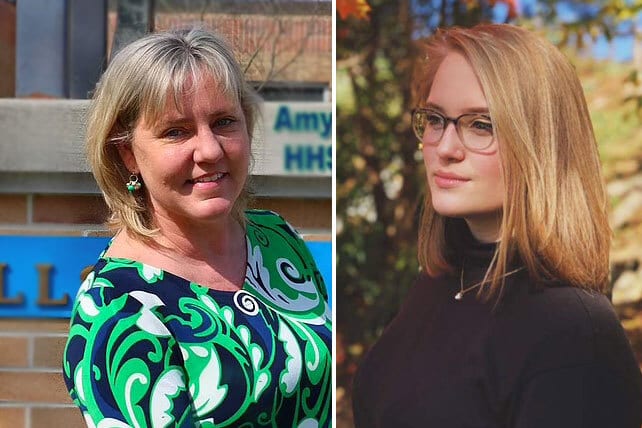In an email responding to the principal’s feedback, Turner explained that she could not give a “genuine speech” with the edits Goldsmith had requested:
I don’t agree that we should avoid the topic of tragedy and death because that is part of everyone’s future. I understand what you are saying but for me, this is a time for my peers to elevate our lives and to choose how we want to live since we’re not promised tomorrow and I don’t want to write a speech that won’t be meaningful just to check off the box. I believe it is celebratory to call people to a life of purpose and meaning and a call to action to live a life well.
For me, my personal future relies on my faith and I also want the freedom to be able to address that in my speech if the opportunity arises.
Goldsmith countered, “I think one can call for a life of purpose without overtly using the words death and tragedy. While there is a degree of freedom to the content of your speech, there are also considerations of what the content and message should be at a commencement celebration and it’s [sic] appropriateness for the audience. Your speech has a good thesis, it’s the connotations of the words that you can avoid.”
First Liberty Defends Elizabeth Turner
In addition to including exhibits of the above exchanges in their letter to Goldsmith, First Liberty’s lawyers also referred to a conversation the principal had with Turner in which Goldsmith told Turner that she could not express her religious beliefs in her speech because she will be speaking on behalf of the school.
The principal is mistaken in this belief, argue Berry and Russell. “Student graduation speeches constitute private speech, not government speech, and private speech is not subject to the Establishment Clause…Ms. Turner’s statements do not transform into government speech simply because they are delivered in a public setting or to a public audience.” The lawyers cited two cases relevant to Turner’s situation, as well as guidance the U.S. Department of Education issued in January 2020 that states:
Where schools permit student expression on the basis of genuinely content-neutral criteria, and students retain primary control over the content of their expression, the speech of students who choose to express themselves through religious means such as prayer is not attributable to the State and may not be restricted because of its religious content…Student remarks are not attributable to the school simply because they are delivered in a public setting or to a public audience.
Franklin Graham, president of Samaritan’s Purse and the Billy Graham Evangelistic Association, posted about Elizabeth Turner’s predicament and praised Turner for taking a stand, saying, “Elizabeth is a real leader. I’m proud of her for standing her ground—for the religious freedoms of all students and all Americans. Elizabeth—we are praying for you! I pray that your great speech will bless and inspire many!”

